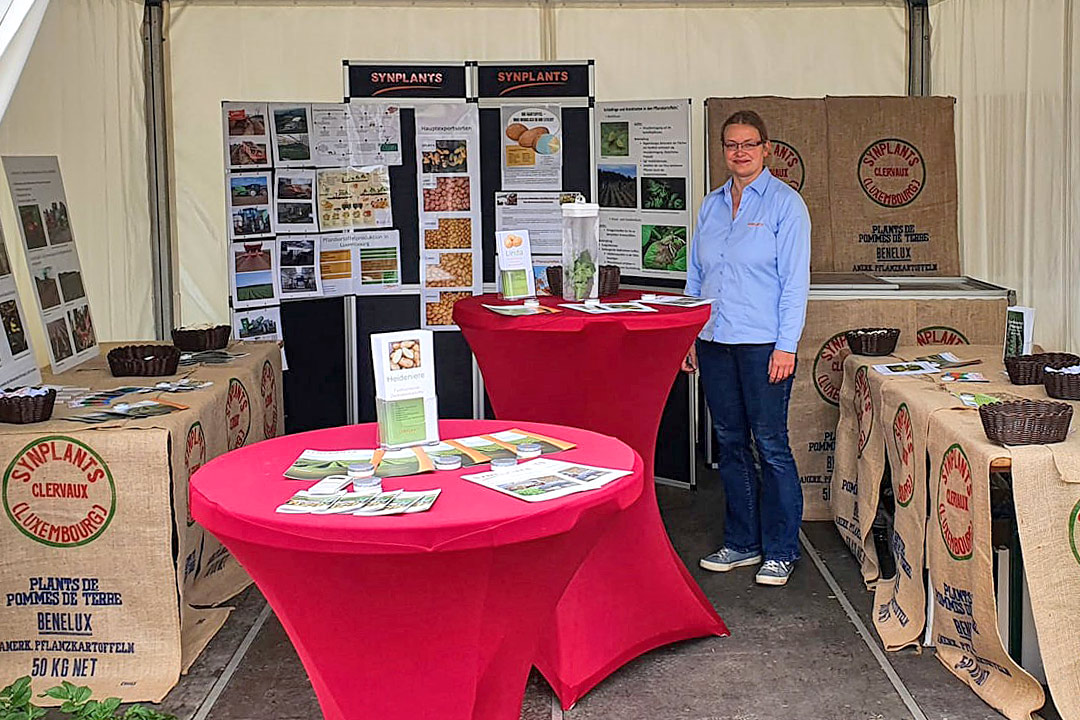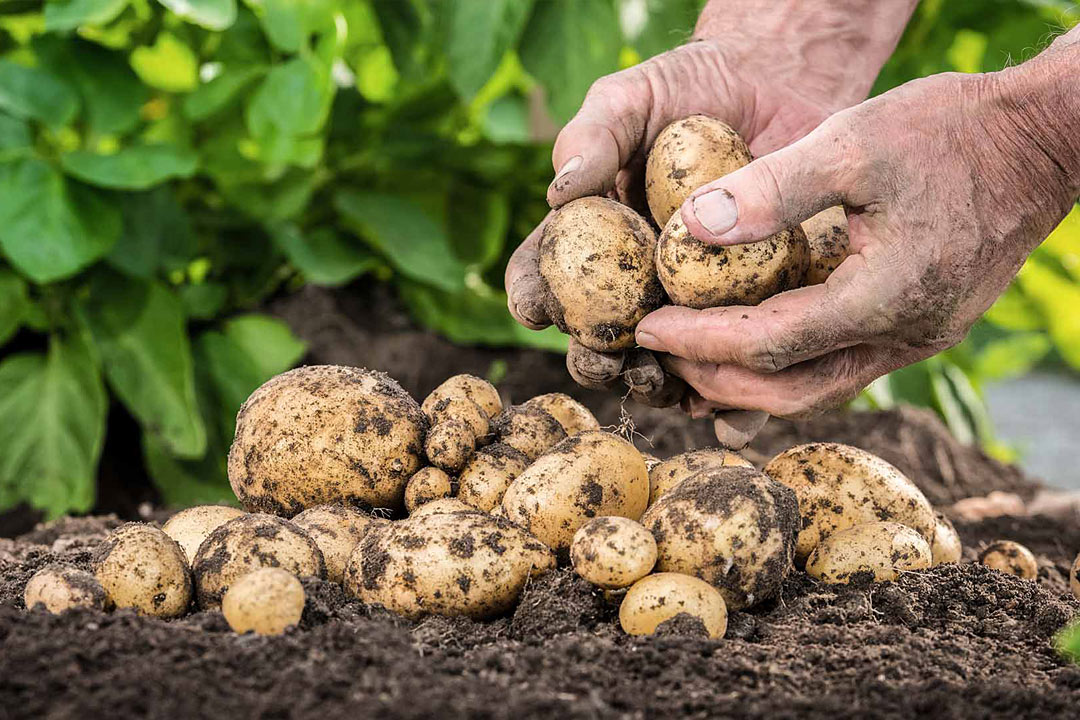You are looking for a job?

We are looking for a technology-enthusiastic warehouse employee (m/f) to start as soon as possible.
Your tasks:
- Participation in the storage, processing, packaging and shipping of potatoes
- Participation in the maintenance of the production facilities
Your profile:
- Forklift driver's license an advantage
- Teamwork and physical resilience
- Diligence and safety awareness are very important
- Knowledge of German or French
You will be part of a motivated team and expect new challenges and a pleasant working atmosphere. Send your application documents (CV + letter of motivation) by email to info@synplants.lu
Potato Cultivation in Corona Times

Hardly any crop has such an eventful and varied history and such a promising future as the potato. From the 1770s, when large parts of Europe were suffering from famine, the potato played a central role in combating hunger and poverty as a savior in times of need. The value of the potato for food security was widely recognized. The tuber is an important source of carbohydrates, vitamin C and valuable minerals. It has the highest protein content of all root and tuber crops and has a good amino acid composition. Due to its ingredients, the potato is one of the healthiest staple foods and is ideally suited for the production of a wide variety of processed products. In addition, it can be stored much better than yam or cassava and can feed significantly more people per hectare than rice or wheat.
Virus Pandemic
At the beginning of 2020, the world was still in its usual order. News of a virus that had appeared in China for the first time probably impressed few in our climes. At first only sporadically, but then more violently, the first effects of the impending Corona wave arrived in our country: Lack of transportation, border closures, sales slumps, hoarding purchases, etc. Since March 2020, nothing has been the same and we will probably have to get used to dealing with the virus and living with it.Regional Supply
The COVID-19 pandemic has led to a new awareness of local food production among many people. Due to fear of the coronavirus, "hoarding purchases" were not uncommon at the beginning of the pandemic. The current situation has clearly demonstrated that flows of goods from many other countries slow down when international trade comes to a halt. Meanwhile, domestic supply chains were able to function reliably. The COVID 19 crisis once again shows how important it is to have a secure supply of domestic food. While private household consumption of ware potatoes had been declining in recent years, the Corona pandemic caused a turnaround, at least initially. Consumers became aware of regional production and availability, and the freshly prepared, tasty ware potato is once again finding much more favor with consumers. This once again demonstrated the importance of the potato for the diet of the population.Corona-related Slump in Demand
Nevertheless, significant areas of the potato market experienced a massive slump with the outbreak of the pandemic. With the lockdown of the global economy, potatoes for processing have seen little demand as catering facilities are closed and major events and sporting events are not allowed to take place. The lack of sales in these areas means that significant volumes are now not being purchased by growers of processing potatoes. As a result, these farms purchased significantly less new seed potatoes for the 2020-21 season; those with thousands of tons of unsellable potatoes in storage are trying to plant at least some of them. Across Europe, hundreds of thousands of tons of seed, ware and processing potatoes were still in storage at the end of the 2020 season and had to be "disposed of" in biogas plants and as livestock feed. This resulted in a loss of millions of euros for the agricultural sector.While sales of potatoes for human consumption initially increased, it is now clear that the COVID 19 pandemic is having a devastating impact on the potato market. Due to the ongoing lockdown, demand for potato products in the food service sector is still very low, resulting in extremely low-price levels. NEPG (Northwest European Potato Growers Organization) reports that demand for raw materials from processing plants is at about 80% compared to last season before the pandemic and prices are currently at one-third. European potato processors are stuck with large stocks of finished products in their cold stores. Fearing that current restrictions will remain in place despite the vaccine, growers of processing potatoes are delaying the purchase of seed potatoes as much as possible. In addition, current contract offers from the French fry industry are so low that growing processing potatoes is hardly worthwhile. Furthermore, with the absence of tourism in major seed potato exporting countries such as Egypt and Algeria, there is a lack of foreign exchange to import seed potatoes. Large quantities of high-quality seed potatoes can currently only be marketed at very low prices.
Future prospects of regional production
Despite all the negative headlines, the potato is and remains the "food of the future," and not just for the FAO. 85 percent of a plant is used for food, compared with only about 50 percent for cereals. Once the pandemic is over, seed potatoes will be needed again worldwide. Specialized farms will be needed to meet the demand.If we want to continue to produce and consume high-quality domestic potatoes in the future, fair trade practices, fair prices, a necessary level of crop protection and a debureaucratization in production and quality standards are the keys to success. Finally, it is up to politics to give future cultivation in Luxembourg, with its short supply chains and a vital rural area, a perspective. A change in thinking towards local production, regardless of whether it is organic or conventional, at fair prices for farmers must become firmly rooted in the population, not only in times of crisis.